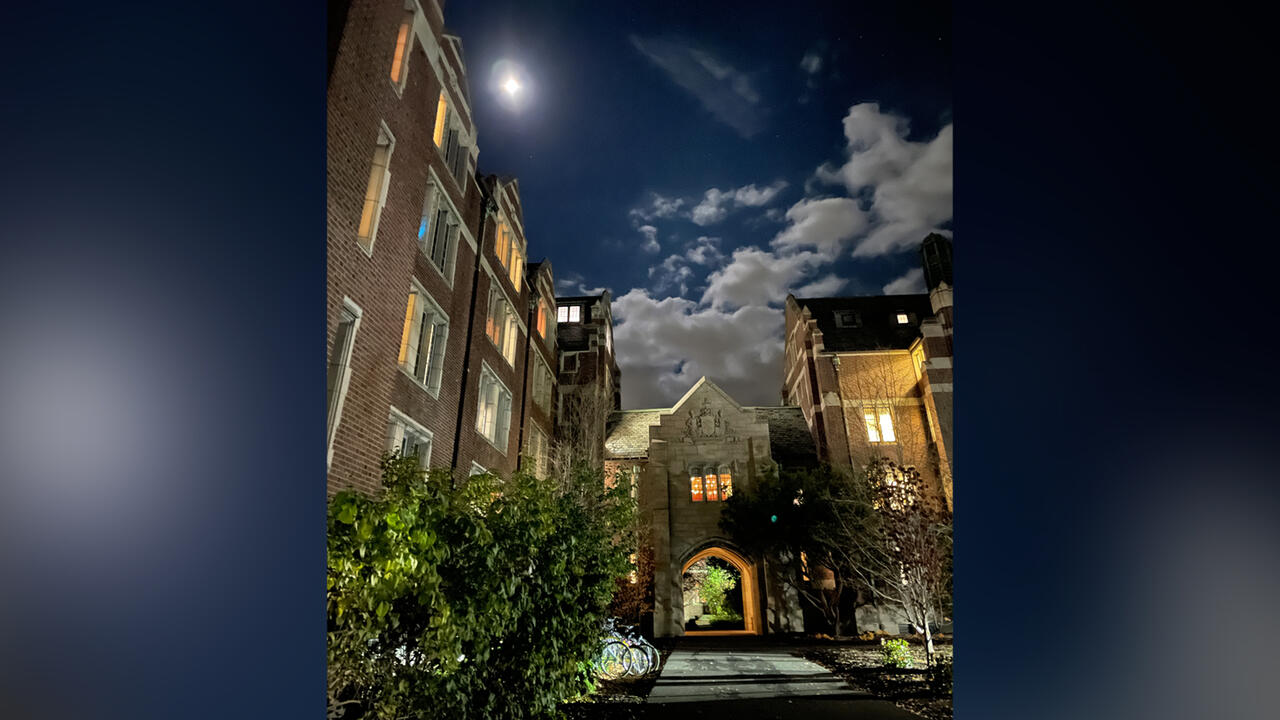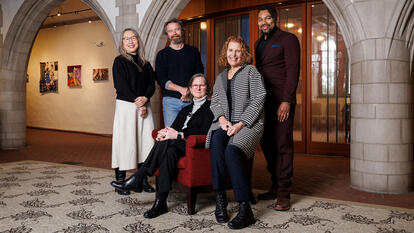
A Spooky Syllabus—History 114: American Hauntings
Ghost stories are a spooky-season staple, but in the first-year seminar HIST 114: American Hauntings, taught by Kate Grandjean, associate professor of history, they are the focus of the entire semester. Grandjean talked with us about her course and, as a Halloween treat, shared her favorite Wellesley ghost story.
The interview has been edited for length and clarity.
Tell us a little about your American Hauntings seminar and what inspired you to teach this topic.
Kate Grandjean: It’s basically a class about history and memory. One of the premises is that we think about the past, and we think about American history through the prism of ghost stories and hauntings. Several years ago I realized that there is this industry of ghost tours and historical sites that trade on the fact that we like to think about the past as a haunted place, and now Americans increasingly consume their history in that way. So I thought, OK, let me design a seminar where we can talk about what that means. How can we talk about the American past as a haunted terrain? And that’s what we do. The class is discussion based, starting off with a few theoretical readings. We think about things like: What is a ghost? What do they want? What are they usually after? What are the characteristics historically in the way that Americans have thought about ghosts and hauntings? And then we move into a case study approach, where each week we talk about a different haunting, drill down very deeply into that particular story, and think about all of its implications.
Is it unusual to discuss ghost stories in academic settings?
Grandjean: I mean, we all love ghost stories. Ghost lore, thinking about the dead, and our relationship with ghosts, hasn’t always been a sort of accepted scholarly inquiry among historians, but I think that’s starting to change. There have been some works in recent years that have really taken seriously that ghost stories do cultural work, and people tell them for a particular reason. Ghost stories live in American culture, because they’re useful to us. So it felt like it felt like the right time to open up that kind of discussion with Wellesley students.
Are there any ghost stories you wanted to include in the class but didn’t?
Grandjean: There have been some I’ve considered, but whether I include them in the course depends on what the documentary record is or whether there are readings that can speak to the story that I want to look at. Sometimes you find that it’s just too thin, and can’t sustain 2 1/2 hours of talking about it. One of the stories I did include when I first designed the course was the Bell Witch, which is a haunting in Tennessee that has been around at least since the 19th century. It’s about this family who’s afflicted by particular strange noises and phenomena. And allegedly, it’s associated with some neighbor woman who lives nearby. But it’s so unwieldy and it involves so many different levels of complexity, I had to take it off the table. Most of the ones I find really interesting though are on the syllabus, honestly.
What is your favorite Wellesley ghost story?
Grandjean: By many accounts, the dorm Claflin Hall is haunted by a little girl. She seems to be sort of a playful, mischievous ghost. People will talk about hearing a little girl giggling and then a door slamming, or they will share things like “I hear her running around upstairs” or “I hear her laughing.” Many of my own students have told me that they’ve had experiences with this ghost. Every year when I ask my students to bring Wellesley ghost stories to class, she gets brought up right away.
Do you believe in ghosts?
Grandjean: I would say I do. I would say I’m at the very least open-minded to the idea of them. I think there are things we don’t understand about physics, about the universe. I’ve had a few of my own experiences that have pushed me in the direction of belief, but one thing I’ll say about my class is I tell them right at the beginning, whether you’re a skeptic or a believer or an agnostic, it’s all OK, to me. It’s not my objective to decide whether or not ghosts are real. It’s really the intellectual project of the course to understand what ghosts mean to us.



